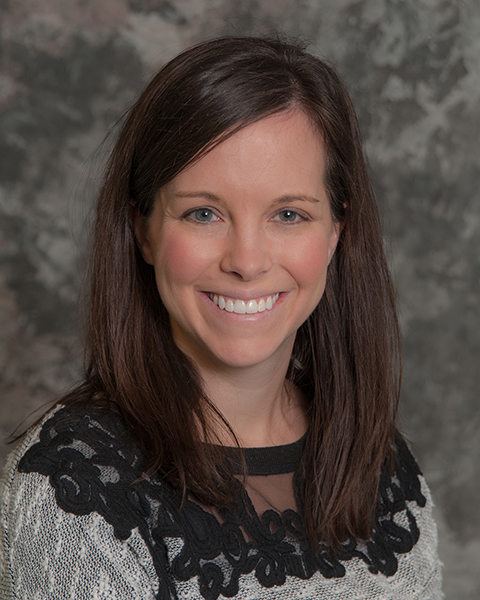A Family Affair: Genetic Testing for Cancer Risk
Penn Highlands General Surgery physician assistant Melissa Hilliard first observed the need for genetic testing in our region while working in women’s health. Five years ago when she joined the practice of Dr. Kelley Smith, Penn Highlands general surgeon and women’s breast specialist, the high incidence of breast cancer patients who came through the practice reinforced that need. “With our practice having such a high predominance of breast cancer,” Hilliard says, “so many of those patients had a strong family history”—which “has such an important impact on what decision to make.” As an example, for an individual who receives news of a breast cancer diagnosis for themselves or a family member, understanding the genetic risk can help that individual make the decision between a lumpectomy (lump removal from the breast) versus a bilateral mastectomy (having both breasts removed).
But a few years ago, says Hilliard, “They had to travel to Pittsburgh and then wait two weeks to even get an appointment.” Hilliard and Smith made the joint decision to develop a genetics program as one of the services offered through their Penn Highlands practice. “The initial spur was to help our patients make treatment decisions,” Smith says, “but we realized there are all kinds of people walking around with concerns. We can put their minds at ease, so we started it here. We can do it all while the patient is at our facility, and we’ll get them where they need to go faster.”
As many of us are aware when it comes to an aggressive disease, such promptness can make a difference. Knowing this, Hilliard led the accreditation and approval process for extensive genetic testing to become available at Penn Highlands Healthcare. Previously, BRCA 1 and BRCA 2 were the most common genes to be tested for, but those only reveal a limited finding for most patients. Since Hilliard introduced the program in 2016, the panel still focuses primarily on cancer genetics, but it tests for a wide range of cancer genes such as those affecting the breasts (including for males), the colon, pancreas, uterus, ovaries, kidneys and thyroid, as well as melanoma and leukemias. “We run a pretty extensive panel,” Hilliard says, adding: “If there’s an identified gene for the cancer, we have the ability to test for it.”
In the past year alone, approximately 200 patients have relied on genetic testing at Penn Highlands to help them proactively treat, prevent and watch for symptoms of different types of cancers. So far, patients who have undergone the testing range between their twenties and their eighties. “Anyone can have it done,” Hilliard says, though she notes that testing is “not recommended before age 18 in most cases. You want to be able to make an informed decision for themselves.”
To undergo testing, patients need a referral and then can build their pedigree online using a secure portal with a username and password that Hilliard provides. “This allows us to gather the history that’s pertinent to what we’re doing,” Hilliard says. “Then when they come in, we tweak and clarify it together.”
The test is usually done via a simple saliva sample (though on rare occasion, blood or tissue specimens may be used). In most cases, patients can expect to receive their results in three to four weeks (except when the family risk factors dictate a faster turnaround).
When the results return, Hilliard meets with the patient to develop a strategy based on their findings. “I generate a consult letter stating all recommendations for how they should be handled moving forward,” she says, whether that’s an important interventional procedure or increasing the frequency with which the patient undergoes certain screenings.
Today, the Penn Highlands genetic testing program has gained such momentum that Hilliard, who studied at Bucknell and obtained her board certification from the National Commission of Certification of Physician Assistants, recently earned a certificate of achievement from Harvard University’s medical school in cancer genomics and precision oncology. Now she is actively working toward a certification in Cancer Genetics and High Risk Breast Assessment through the National Consortium of Breast Centers.
As the program grows, naturally patients have questions. Hilliard cites cost and insurance coverage among them. “Anxiety is another,” she says. Some patients discerningly ask whether their results will affect their health insurance. In response, Hilliard shares information about the Genetic Information Nondiscriminatory Act, which protects people who are genetic carriers. “If you test positive, it cannot be considered a preexisting condition,” Hilliard says.
All this to better understand the ties that bind us. “Many do it for the benefit of other family members,” Hilliard observes. “They say, ‘I’m doing this because my children want me to.’ A lot of people understand that knowing their genetic status is about more than just themselves.”
To learn more about genetic testing at Penn Highlands Healthcare, visit www.phhealthcare.org/genetictesting.

